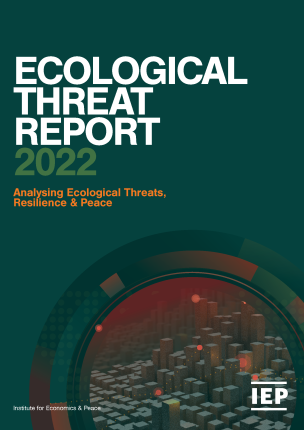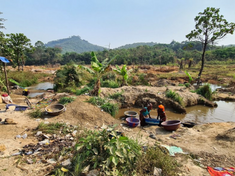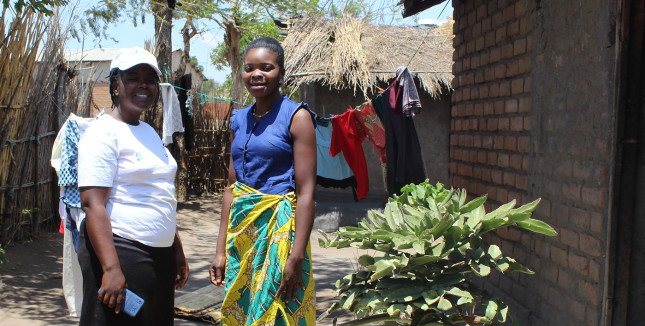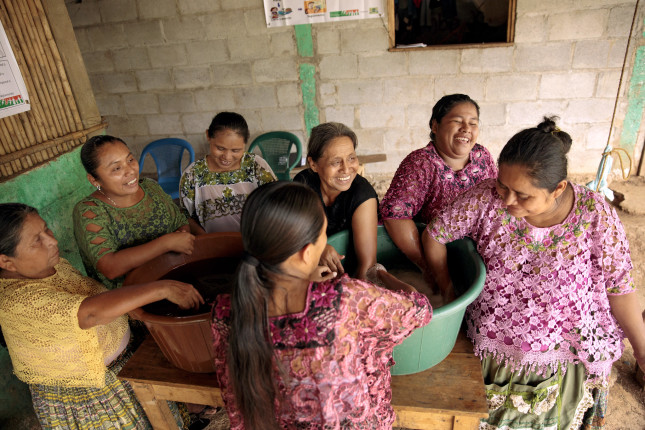-
Living on the Edge: Who’s Ready for Climate Tipping Points?
›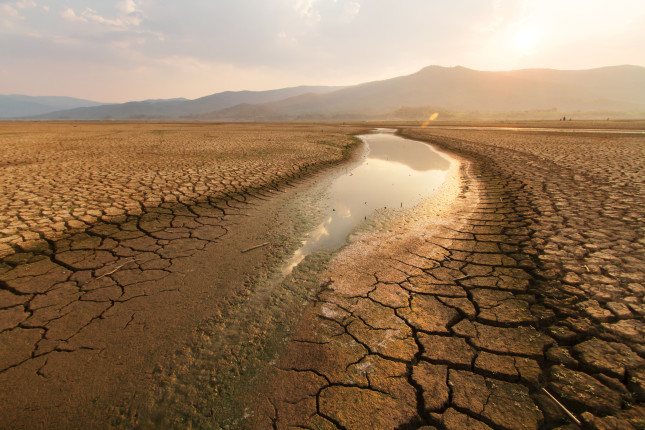
Climate impacts are growing more frequent and severe as global temperatures rise. Weather-related disasters have seen a five-fold increase over the past half-century. In many cases, these calamities are already testing the adaptation capabilities of vulnerable communities across the world. If emissions follow the trajectory set by current country targets, the chance of temporarily overshooting the 1.5 °C target in the next five years is 48 percent.
This failure would have implications for the global economy and international security. Yet despite the fact that climate change shapes geopolitics, climate risk itself has rarely been featured in international geopolitics and diplomacy.
-
Ecological Threats, Resilience and Peace: A New Assessment of Hotspots
›
Which nations are most at risk of catastrophic outcomes due to intensifying ecological threats? The third edition of the Institute for Economics & Peace (IEP)’s Ecological Threat Report (ETR)—released on October 20, 2022— applies a lens of societal resilience to predict the hotspots most likely to suffer from instability and conflict in the future, and provides projections of ongoing trends to 2050.
-
Creating a Just Transition in Green Minerals: A New Video from the Wilson Center and its Partners
›We need minerals to build the solar panels, wind turbines, and other technologies that will decarbonize our economies—and we need a lot of them. The World Bank estimates that demand for lithium, cobalt, and graphite could jump by as much as 500 percent by 2050. Yet mining for these resources has had a fraught history, and it continues to be associated with a hefty list of human rights and conflict risks, including violence, child labor, poor working conditions, land rights abuses, environmental damage and pollution, and a lack of community participation.
-
High Stakes: China’s Leadership in Global Biodiversity Governance
›China Environment Forum // Guest Contributor // Vulnerable Deltas // November 3, 2022 // By Jesse RodenbikerAs countries prepare to gather for the Fifteenth meeting of the Conference of the Parties (COP) to the Convention on Biological Diversity (CBD) in December 2022, the stakes for global biodiversity couldn’t be higher. Over the last half century, global wildlife population sizes plummeted by 60 percent. A 2019 UN report, one among many, warned that the current global response to this accelerating loss of species is insufficient and that “transformative changes are needed to restore and protect nature.”
-
Community-centered Approaches to Green Mineral Mining: A Conversation With Pact’s Roger-Mark De Souza
›
According to the World Bank, building enough renewable energy infrastructure to keep global warming below 2C will require more than 3 billion tons of minerals. Reducing emissions quickly is crucial to minimizing risk for the world’s most climate-vulnerable communities, many of whom are on the front lines of a crisis they did not create. But unless we are careful, ramping up mining in order to decarbonize could actually worsen inequity and injustice. “How do we do this quickly, safely, and sustainably, in ways that benefit all?” asks Lauren Risi, Director of the Wilson Center’s Environmental Change and Security Program in this week’s New Security Broadcast.
-
Meeting Family Planning Supply Chain Challenges in Sub-Saharan Africa
›
Last April, Eless Limani set out on a long and costly bicycle ride to the Mponela Health Center to get a new supply of birth control pills, her usual contraceptive. The 32-year-old mother was not ready to have a second child.
-
Celebrating “Long Man”: Eastern Band Cherokees Work Together to Care for their Rivers
›
On a crisp autumn morning, the Yellow Hill Community Center in western North Carolina buzzed with excitement as more than 120 Cherokees and their allies shared conversations, laughter, and a hearty breakfast. They had descended upon the center in the Qualla Boundary on October 19, 2022 to mark the second annual Honor Long Man Day in the homelands of the Eastern Band of Cherokee Indians (EBCI).
-
Investing in Women and Girls is Central to Addressing Root Causes of Migration from Guatemala
›
In recent years, a growing proportion of migrants at the US southern border have come from Guatemala, El Salvador, and Honduras. This surge of migrants from Central America has prompted the U.S. government to seek to better understand and address the root causes of migration from the region. One substantive response came in July 2021, under Executive Order 14010, when the Biden-Harris Administration released what has become known as the Root Causes Strategy. The White House pledged to commit $4 billion over four years on efforts to address drivers of irregular migration from these three countries.
Showing posts from category *Blog Columns.


